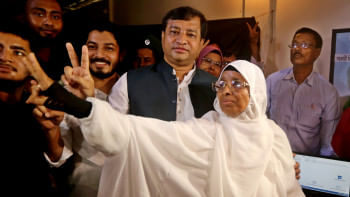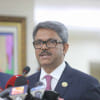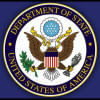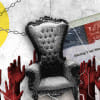A fair warning against a foul conduct

The decision to restrict US visa services to Bangladeshi nationals who might be unlawfully and immorally involved in undermining the forthcoming electoral process has created a political maelstrom. The announcement came from the US Secretary of State Antony Blinken on Wednesday. The White House spokesperson, Matthew Miller, explained the new visa policy under Section 212(a)(3)(C) – known as "3C" – of the Immigration and Nationality Act that had been enacted to "support Bangladesh's goal of holding free, fair, and peaceful national elections."
At the White House press briefing, available on the website of the US Department of State, the diplomatic correspondent from the AP, Matt Lee, queried why the 3C needed to be spelt out specifically for Bangladesh as the US reserved the right to issue or revoke visas anyway. A tete-a-tete ensued as Lee tried to understand the nature of the "grand deterrent", to which Miller conceded that it was "a symbolic thing."
A second journalist tried to decipher the 'signal." Miller replied, "It is a signal to all members of society, – military security forces, members of the judiciary – that we have this ability and that we are paying attention."
The journalist quizzed, "Are you expecting that there will be rigged elections or irregularities because you're sort of doing this preemptive strike? Is that in any way a warning or criticism of the government and the prime minister in Bangladesh?"
Miller responded by saying, "No, I think it is a signal [by] our part that we support free, fair, and peaceful elections in Bangladesh."
Miller was then asked, "Usually you impose these visa restrictions or sanctions when there's proof of irregularities. In this case, you're saying, 'Watch out if?'"
Miller confirmed by saying, "Correct."
There is a lot to be learned from this discourse; the beauty of democratic norms. The US decision, as we now know, was intimated to our foreign secretary when he was touring Washington. For three weeks, the government had time to prepare its response. It did so by heightening suspicions about the adversary role of foreign agents. The withdrawal of police escort from certain diplomats, the unnecessary comment on ambassadorial flags, and the high-profile BBC interview to suggest dislike for the premier, all added fuel to the fear of sanctions. When the news eventually broke three weeks later, it turned out to be mildly strategic. The potency of this remedy is homoeopathic as it has the potential of being increased in intensity. And they say the power of homoeopathic medicine increases every time you hit the bottle a certain way.
The announcement that came in the wake of the Gazipur City Corporation mayoral election had already shown some impact on the people or agencies concerned. Coincidence or not, we just saw a peaceful election where the candidate from the incumbent party lost to a rival independent token figure. The "loser" conceded in a manner that would have surprised even the US, who had not even recovered from the nightmare of counting and recounting their presidential ballots. One can only "watch out" for the "fair" electoral practice that we saw in Gazipur prevailing in the next seven months for the strengthening of democracy.
There is a new world order brewing on the margin. The eye shifts to other parts of the world to ensure the sanctity of the order. It is an emerging battle between two world orders: "freedom-with-democracy" and "progress-without-democracy"
The "fair electoral warning" made the Ministry of Foreign Affairs give a very composed reaction, reiterating the government's position on holding a fair election. The statement did not have the usual extra-hot zest that our saucy politicians and pundits favour. Everyone is suddenly "behaving". Nevertheless, no party has missed the chance to score political mileage. The government is quick to remind its opposition that while this "visa carrot" is a chance to mend the system, the "visa stick" applies to any party causing impediments or violence to impede the election; the opposition's violent past is a case in point. The opposition interprets this visa ban as a slap on the wrists of those who have been in power for long. The "visa stick", the opposition hopes, will create a level playing field for them to participate in the next election. This does not, however, resolve the issue of a referee supervising the fair play. Can the nullified provision for a caretaker government be promoted by the visa master, who does not have any such practice in its own fair and lovely world?
The idea of "fairness" is, by definition, subjective. What tools will be used to determine "fairness"? In a country, where electioneering is a "costly" affair as candidates have to produce "conviction" of their abilities to be close to power to bring any considerable change to the constituency. They have to pay heavily to the party leadership to buy their tickets, then pay visits to their constituents to franchise or not to franchise their rights to veer the verdict in their favour. So any aggrieved party can cry foul in an after-election scenario. In a country that loves litigation, there's a local joke that describes the act of a village politician, who admits, "Since I am in town, I might as well lodge a case against my opponent". How the US will determine the fair/foul actors remains to be seen!
Then there are the state apparatuses who act as the chemical reagents in an election for the action-reaction to occur. In a young democracy, where the institutions are yet to gain a firm footing, we can only be Shakespearean in stating, "Fair is foul, foul fair".
The fair "signal" for all the "foul" actors can become counterproductive if the officials decide to avoid the electoral hassle altogether. A magistrate might think, "Why jeopardise my son's future of studying in the US for a fight not my own?" There can be many others in villages who might think that visa restrictions do not concern them at all, as they are not the ones with green cards or second homes in the Global North. But their impudence and actions on the periphery might have consequences for their leaders or instruction-givers at the centre. Indeed, it will take time for us to practise democracy in its full form.
Meanwhile, our access to the promised land will depend on how we exhibit and practice prescribed virtues to be aligned with the free-thinking liberal world. The signal comes with an additional string of not deviating from the "ideal" path to tilt towards the lure of the material growth of development.
There is a new world order brewing on the margin. The eye shifts to other parts of the world to ensure the sanctity of the order. It is an emerging battle between two world orders: "freedom-with-democracy" and "progress-without-democracy". A clash of the titans is unfolding at the macro level. We, mere mortals, are caught in the crossfire at the micro level.
Dr Shamsad Mortuza is a professor of English at Dhaka University.

 For all latest news, follow The Daily Star's Google News channel.
For all latest news, follow The Daily Star's Google News channel. 










Comments